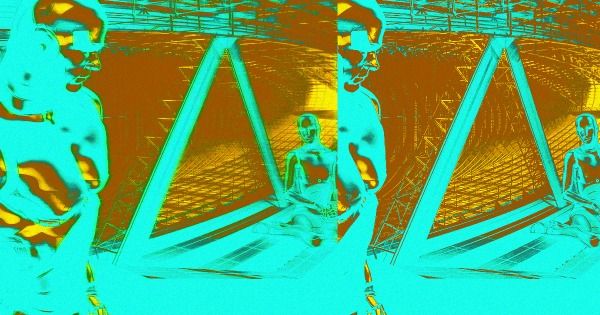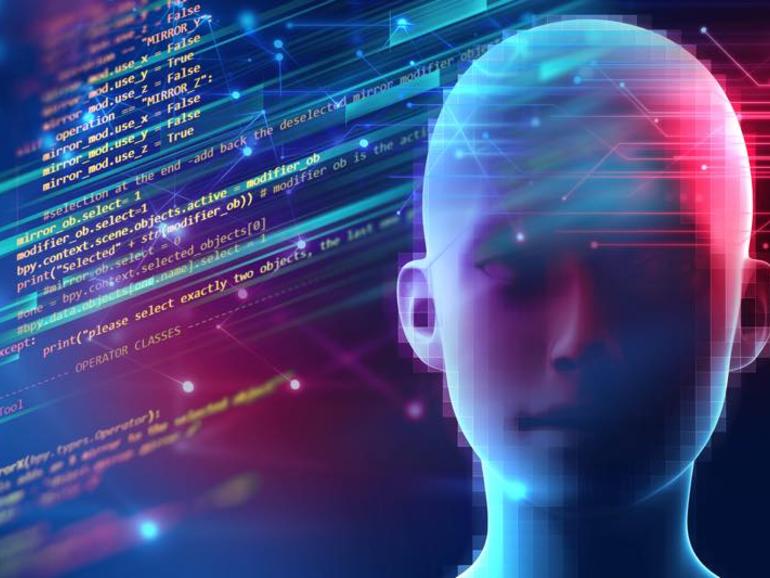Starting from zero knowledge and without human data, AlphaGo Zero was able to teach itself to play Go and to develop novel strategies that provide new insights into the oldest of games.


DeepMind’s Professor David Silver describes AlphaGo Zero, the latest evolution of AlphaGo, the first computer program to defeat a world champion at the ancient Chinese game of Go. Zero is even more powerful and is arguably the strongest Go player in history.
Previous versions of AlphaGo initially trained on thousands of human amateur and professional games to learn how to play Go. AlphaGo Zero skips this step and learns to play simply by playing games against itself, starting from completely random play. In doing so, it quickly surpassed human level of play and defeated the previously published champion-defeating version of AlphaGo by 100 games to 0.
If similar techniques can be applied to other structured problems, such as protein folding, reducing energy consumption or searching for revolutionary new materials, the resulting breakthroughs have the potential to positively impact society.
Find out more here: https://deepmind.com/blog/alphago-zero-learning-scratch


With the possibility of millions or an infinite number of problems automating everything will cause all things to be solved digitally into a simple math problem. The problems could essentially be hacked by shores algorithm or maybe a theory of everything like m theory or Stephen Hawking’s theory of everything. Maybe it is just as simple as a basic formula like Einstein created E=mc2. Also like some mathematicians have theorized maybe just one line of code that solves everything.
Automation is a game-changer for modern problem-solving – enabling not only visibility to real-time operations but the ability to effectively project the impact of potential solutions into the future. As problem-solvers become more comfortable using the new tools available to them, companies will be able to effectively isolate (and avoid) the impact of problems to their operations and focus their resources on solving the underlying issues and enabling long-term success. Learn More here.

Robotics specialist German Bionic is to present the first connected robot exoskeleton for use with the industrial internet of things, at the Hannover Messe industrial technology show.
The German Bionic IO cloud platform connects the third generation of the Cray X exoskeleton with all common enterprise solutions and networked manufacturing systems, enabling complete integration into “smart factory” and Industry 4.0 environments.
Besides cloud services such as wireless software updates – over the air – and predictive maintenance, German Bionic IO facilitates the continuous optimization of the intelligent control system through machine learning and lays the data-scientific foundation for the next development stages of bionics.

Yara International, a crop nutrition company, and IBM, have signed an agreement to build the world’s leading digital farming platform, providing holistic digital services and instant agronomic advice.
Yara and IBM Services will jointly innovate and commercialize digital agricultural solutions that will help increase global food production by drawing on the two companies’ complementary capabilities.
Yara’s agronomic knowledge, backed by more than 800 agronomists and a century of experience, and IBM’s digital platforms, services, and expertise in artificial intelligence and data analytics.
Abstract: DeepMind Lab is a first-person 3D game platform designed for research and development of general artificial intelligence and machine learning systems. DeepMind Lab can be used to study how autonomous artificial agents may learn complex tasks in large, partially observed, and visually diverse worlds. DeepMind Lab has a simple and flexible API enabling creative task-designs and novel AI-designs to be explored and quickly iterated upon. It is powered by a fast and widely recognised game engine, and tailored for effective use by the research community.

We’re committed to accelerating scientific progress for the benefit of society. One way we do this is through releasing open source materials, to contribute to the AI community’s culture of collaboration and shared progress.
Along with publishing papers to accompany research conducted at DeepMind, we release open source environments, data sets, and code to enable the broader research community to engage with our work and build upon it. For example, you can build on our implementations of the Deep Q-Network or Differential Neural Computer, or experiment in the same environments we use for our research, such as DeepMind Lab or StarCraft II.
Our open source contributions can be viewed on our site and on GitHub.

Circa 2018 Essentially automating the whole system is basically the only way to solve the trillions upon trillions of problems because when we digitize everything 80 billion years of problems can be solved sometimes in seconds.
Rice University researchers created a deep learning, software coding application called BAYOU that can help human programmers work with APIs.